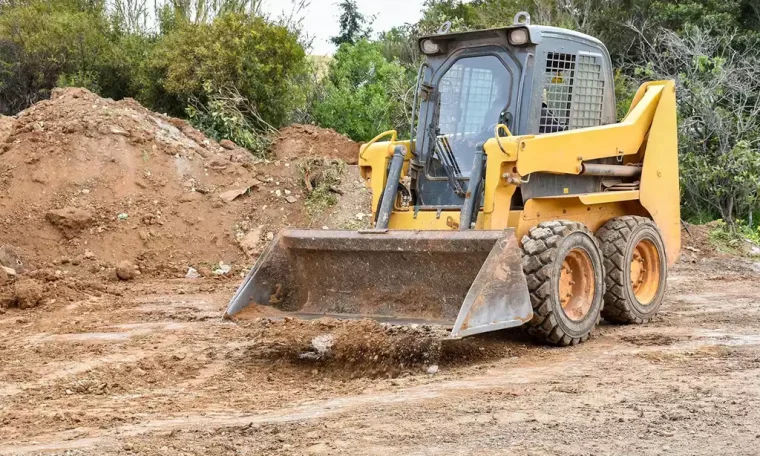
In the realm of construction and landscaping, the term “dirt work” encompasses a variety of tasks and processes crucial for preparing a site for building or enhancing its functionality. From excavation to grading, dirt work lays the foundation, quite literally, for successful construction projects. This article delves into the intricacies of dirt work, shedding light on its importance, types, and impact on construction projects.
Dirt Work: The Backbone of Construction
Dirt work serves as the backbone of any construction project, ensuring that the site is properly prepared for further development. It involves several key processes that are essential for creating a stable and level surface.
Excavation: Digging Deep for Success
Excavation is perhaps the most fundamental aspect of dirt work. It involves digging and removing earth to create space for foundations, basements, utilities, and other structures. This process requires precision to avoid damaging existing structures and to ensure proper drainage.
Grading: Leveling the Playing Field
Grading is the process of shaping the land to achieve a specific slope or level. It is crucial for ensuring proper drainage and preventing erosion. Grading also helps create a stable base for roads, driveways, and buildings.
Soil Compaction: Creating a Solid Foundation
Compacting the soil is essential for creating a stable foundation. It involves compressing the soil to increase its density and load-bearing capacity. Proper soil compaction ensures that the ground can support the structures built on it.
Land Clearing: Making Space for Progress
Land clearing involves removing trees, shrubs, rocks, and other obstacles from the construction site. This process is necessary to create a clear and safe working environment and to make way for new construction.
Types of Dirt Work
Dirt work can be classified into several types, depending on the specific requirements of the project:
Earth moving: Shaping the Landscape
Earth moving involves moving large quantities of earth to reshape the landscape. This process is often used to create hills, valleys, and other features for landscaping or to level the ground for construction.
Trenching: Digging Deep for Utilities
Trenching is the process of digging narrow, deep channels in the ground to install utilities such as water pipes, sewer lines, and electrical cables. Proper trenching is essential for ensuring the efficient operation of these utilities.
Backfilling: Filling the Gaps
Backfilling is the process of refilling excavated areas with soil or other materials. This is done to restore the ground to its original level or to create a stable foundation for new construction.
Impact of Dirt Work on Construction Projects
Dirt work plays a crucial role in the success of construction projects. It ensures that the site is properly prepared, and the foundation is stable, which is essential for the safety and longevity of the structures built on it.
Safety: Ensuring a Secure Environment
Properly executed dirt work helps prevent accidents and injuries by creating a stable and secure work environment. It also ensures that the site is free from hazards such as unstable ground and uneven surfaces.
Efficiency: Streamlining the Construction Process
Well-planned dirt work can streamline the construction process by preparing the site efficiently and minimizing the need for rework. This can lead to cost savings and faster project completion.
Longevity: Building for the Future
A solid foundation created through proper dirt work ensures the longevity of the structures built on it. It reduces the risk of settlement and other issues that can compromise the integrity of the building over time.
FAQs about Dirt Work
Here are some frequently asked questions about dirt work:
- What equipment is used for dirt work?
- Excavators: for digging and moving large amounts of earth.
- Bulldozers: for grading and leveling the ground.
- Dump trucks: for transporting soil and debris.
- Backhoes: for digging and lifting heavy loads.
- Graders: for leveling the ground and creating slopes.
- Compactors: for compacting soil to create a stable foundation.
- How long does dirt work take?
- The duration of dirt work can vary depending on the size and complexity of the project. Small projects may be completed in a few days, while larger projects can take several weeks or even months to complete.
- What is the cost of dirt work?
- The cost of dirt work depends on various factors such as the size of the project, the type of equipment used, the labor required, and the location. On average, dirt work can cost anywhere from a few thousand dollars to tens of thousands of dollars.
- Can dirt work be done in any weather?
- While dirt work can be done in most weather conditions, certain conditions can affect the progress and quality of the work. For example, heavy rain can make the ground too wet for excavation, while extreme heat can make it difficult to compact the soil.
- What are the common challenges in dirt work?
- One common challenge in dirt work is dealing with unexpected obstacles such as rocks, tree roots, or underground utilities. Another challenge is ensuring proper drainage to prevent erosion and water damage. Additionally, inclement weather can also pose challenges to dirt work.
- How can I find a reliable dirt work contractor?
- To find a reliable dirt work contractor, you can start by asking for recommendations from friends, family, or colleagues who have had similar work done. You can also research online and read reviews from past clients. It’s important to check the contractor’s credentials, experience, and insurance before hiring them for your project.
Conclusion
Dirt work is a crucial aspect of construction that lays the foundation for successful projects. It involves several key processes, including excavation, grading, soil compaction, and land clearing, all of which are essential for preparing the site and ensuring the stability and longevity of the structures built on it. By understanding the importance of dirt work and its various aspects, construction professionals can ensure that their projects are completed safely, efficiently, and to the highest standards.



